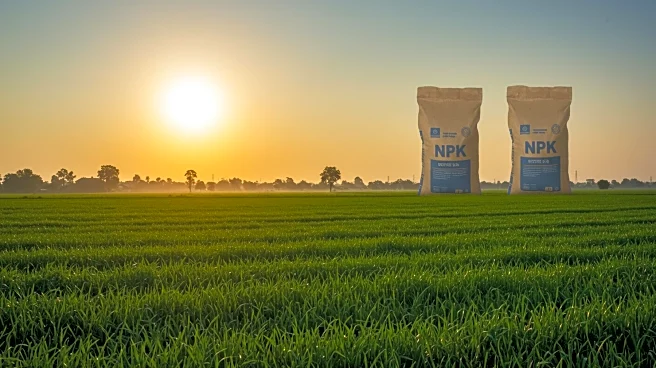What's Happening?
Prime Minister Narendra Modi has emphasized the need for India to achieve self-reliance in the fertilizers sector, similar to its efforts in energy independence. During his Independence Day address, Modi highlighted India's current dependence on imports for fertilizers and urged the farming community to adopt scientific and judicious use of fertilizers to protect soil health. He called on the youth, industrial sector, and private sector to unite in building domestic reserves and developing innovative methods for indigenous production. The government plans to work closely with industry stakeholders and research institutions to bolster domestic capacity.
Why It's Important?
India's push for self-reliance in fertilizers is crucial for its agricultural sector, which relies heavily on imports to meet its needs. By reducing import dependency, India aims to enhance food security and promote sustainable farming practices. The initiative could lead to increased investment in domestic fertilizer production and innovation, benefiting farmers and the agricultural industry. Additionally, self-reliance in fertilizers aligns with Modi's broader vision of economic independence, potentially boosting India's global standing and reducing vulnerability to external market fluctuations.
What's Next?
The government's commitment to self-reliance in fertilizers may result in policy measures to support domestic production and research. Collaborations between government, industry, and research institutions could lead to the development of new technologies and sustainable practices. As India works towards building its fertilizer reserves, stakeholders will need to address challenges such as infrastructure development and market access. The initiative may also prompt discussions on environmental impacts and the role of fertilizers in sustainable agriculture.











